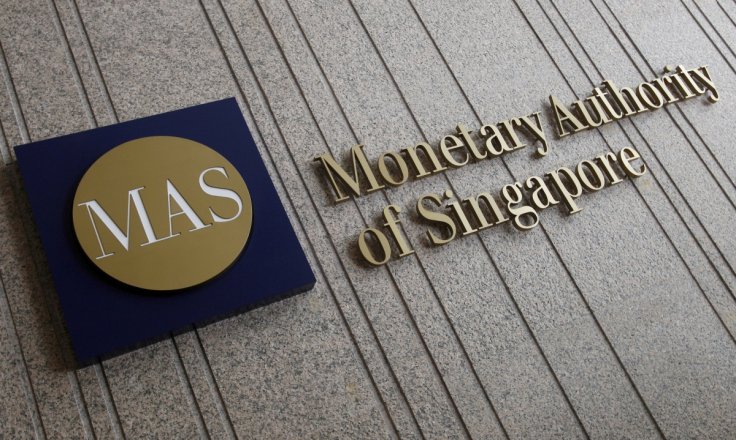
Singapore's central bank on Friday kept its monetary settings unchanged after two consecutive rounds of tightening, underscoring policymakers' concerns about a cooling economy and rising risks to the outlook from slackening global demand.
The Monetary Authority of Singapore (MAS), which manages policy through exchange rate settings rather than interest rates, said it would maintain the slope of the Singapore dollar's policy band while keeping the width and level at which the band is centered unchanged.
17 out of 20 economists in a Reuters poll predicted that the central bank would keep monetary policy unchanged.
Across Asia, a slowing world economy and abrupt end to Federal Reserve policy tightening have seen markets betting on outright rate cuts or easier policy stance for a growing list of central banks.
"GDP growth in the Singapore economy has eased, bringing the level of output closer to its underlying potential. Despite some pickup in labor costs, inflationary pressures are mild and should remain contained," MAS said in its semi-annual statement.
MAS increased the slope of the policy band twice last year in efforts to control rising price pressures and strengthen its currency in its first such tightening moves in six years.
The central bank also on Friday revised down its 2019 core inflation forecast to 1 to 2 percent, from 1.5 to 2.5 percent previously.
Preliminary data for first-quarter gross domestic product (GDP) confirmed the city-state was experiencing its weakest growth in 2-1/2-years on a year-on-year basis.
From the year ago, GDP grew 1.3 percent in the first quarter, below the 1.5 percent expansion forecast in a Reuters poll.
GDP grew 2.0 percent in the January-March period from the previous three months on an annualized and seasonally adjusted basis, well above an expected 1.2 percent expansion.
Manufacturing, once a key pillar of growth for the city-state, showed a shock 12 percent fall in the first quarter from the quarter ago.
"We expected manufacturing to be down but the print is more severe than we thought," Selena Ling, OCBC's head of treasury research said.
The Singapore dollar was broadly unchanged after the decision.
Growth in the affluent city state has been dented over the past year by a Sino-U.S. trade dispute and slowing global demand.
"The uncertainty for the Singapore economy still remains the same, a two-pronged risk – U.S.-Sino trade relations and the maturing of the global electronics cycle," said Barnabas Gan, Singapore economist at United Overseas Bank.








